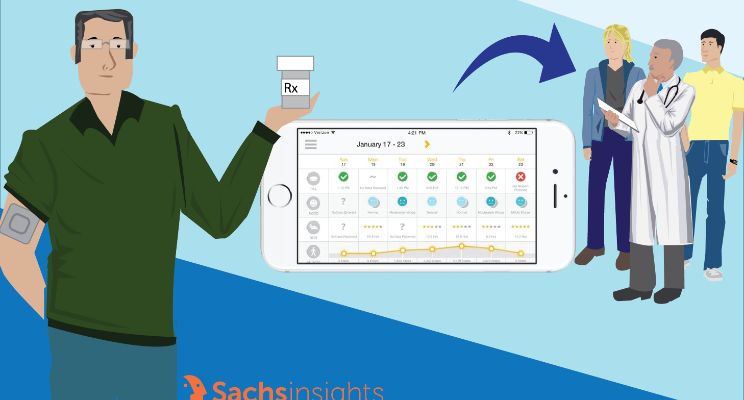The First Digital Pill Approved by the FDA.
Ethics Aside, Will it Impact Adherence?
by Tammy Sachs, CEO & Founder

In 2017, a year in which there are more breaking news stories than most of us can absorb, you may have missed this announcement from the FDA. In a partnership between Otsuka, the manufacturer of Abilify and Proteus Digital Health, Abilify MyCite has passed clinical trials. Abilify, used to treat schizophrenia, bipolar disease and other psychiatric conditions, just went off patent. Abilify MyCite is a capsule with the drug and a sensor. The purpose of the sensor is to alert those designated if a patient misses a dose. It is scheduled to come to market next year.
Clinical trials have proven that MyCite improves tracking though no data exists about adherence. Across disease states – from diabetes to hypertension to psychiatric conditions – lack of adherence is a costly problem. It is costly to patients whose health suffers and to the healthcare system.
When I read this article (aside from ethical concerns about where and how this data will be used) I wondered about what impact, if any, Abilify MyCite will have. For those who’ve personally experienced a loved one with mental illness accompanied by paranoia, manic episodes and the like, there appear to be two kinds of patients. Some are determined (or have a loved one or caretaker) to stay ahead of the disease and take their meds as prescribed. For others, adherence is a major issue for a variety of reasons --many related to the disease itself and how it presents.
MyCite requires the patient to wear a patch – making tracking dependent on whether they choose to or not. The use of sensors seem to be a promising one for older patients who lose their short term memory and have life threatening diseases where skipping pills (or taking too many) is a major and growing concern. It seems odd to me that the first digital pill is for a drug where many patients may not have the ability or willingness to adhere.
What are your thoughts?














